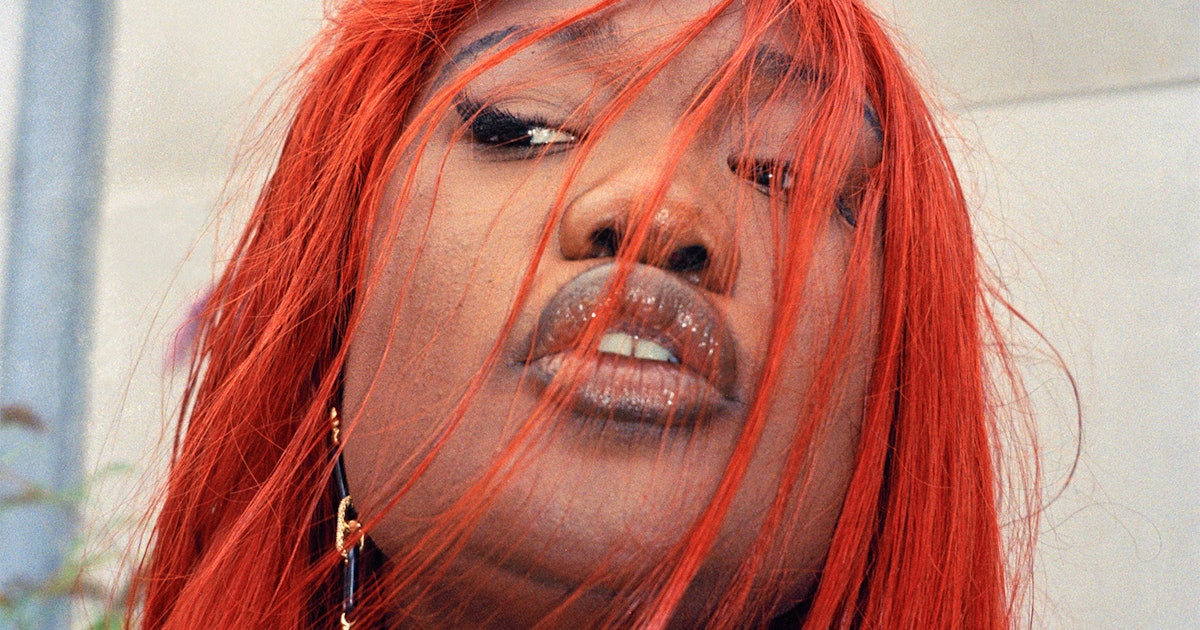For W’s annual The Originals portfolio, we asked stars of film, fashion, art, music, and more to share their insights on staying true to themselves. See this year’s full class of creatives here.
First of all, congratulations! The Tate Modern announced recently that you are the first recipient of their Infinities Commission prize and that your work, which combines music and film with performance and installation, will be on display in the spring of 2025.
It’s such an opportunity, not just because it’s an exhibition but because the prize itself is really for multidisciplinary artists who are situating themselves on the margins of different practices. It’s not for artists who went to the right school or who have the right gallery representation. And the fact that Brian Eno is part of the jury…
You’ve had an incredible number of exhibitions in the past three years, which you’ve managed to balance with your work as a touring DJ and music producer under the moniker Crystallmess. I’ve often wondered when you sleep—if at all.
I will admit, I’m not that good with my sleep! I’m trying to change that by incorporating more of a routine into my life. In my 20s, I used to think that routine meant death. I just don’t like the concept of doing the same thing over and over again.
I would imagine that has also influenced the hybridity of your work.
There’s so much you can do with music that you can’t do with visual art, and vice versa. When I was only making music, I sometimes felt frustrated. I wanted to convey certain ideas and address certain topics and create things aesthetically. When I was younger, I was able to discover the work of a lot of multidisciplinary artists I admire—like Juliana Huxtable—through DIS Magazine. They ran a lot of articles about artists who were addressing topics like body politics and capitalism, but also the irony of the art world and the absurdity of life on the Internet.
Balenciaga T-shirt; Michael Kors Collection briefs; Tiffany & Co. Tiffany Titan by Pharrell Williams necklace and ring.
DIS was an influential hub of post-Internet aesthetics and theory. It spawned a very devout community of contributors and readers—many of whom went on to become major figures in the art and fashion worlds.
One of the main DIS legends I’ve worked with is Babak Radboy, the creative director of Telfar. I would say Shayne Oliver, from Hood By Air, as well. They’ve championed me since I started DJ’ing. I’ve always looked up to them and their way of approaching a world that doesn’t really give power to people like us. They approach it not from a place of victimhood but from a place of agency. They never separated their art form or experimentation from the necessity of making money and building community. They showed me that I don’t have to choose and that I can have everything.
When you were a child, what did you want to be when you grew up?
I wanted to be an archaeologist. My dad used to work in a science museum in Paris, so I always went there and explored the kids’ section. I didn’t come from a milieu where being an artist was a thing. I was probably 22 or 23 before I realized that was a possibility for me. Rather than trying to figure out what I wanted to be, I was thinking more about the type of woman that I want to be. I think about a lot of older Black divas…Whitney, Lil’ Kim, Patti LaBelle, Chaka Khan, even Nicki Minaj. I think that’s where a lot of my resilience lies. They are unapologetic, and their sense of power is unmatched. I knew that I wanted to “do me,” carve my own path, and be a showstopper.
There is a corner of the electronic music world that is very receptive to conceptual ideas and fine art. Is that part of the reason why you’ve gravitated toward it?
They used to call that “conceptronica,” which I low-key hated. It has died down in the past few years. I think being smart is not the wave right now. People are in their Y2K bimbo eras. I feel like I’m a bit of both, to be honest. Electronic music is in a weird space currently. People are mixing in a different way, because everything has become so visual and people are looking for a viral moment. Sometimes it can get a bit gimmicky. But I do think that people are more receptive to the mixing of genres and there’s more open-mindedness. It’s not really about where you play anymore; it’s just about being a good DJ. You need to take people on a journey and kind of lure them in. Some crowds are a little more resistant, but that’s the challenge.
Hair and Makeup by 420 Bombshell for Clarins at Thempresents; Producer: Louise Bouquillion; Fashion Assistant: Marie Poulmarch.

